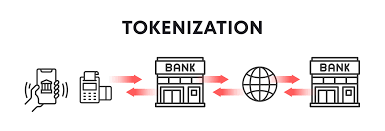Tokenization Technologies Driving Safer Customer Experiences

The rapid adoption of a tokenization framework for digital payments represents a monumental leap forward for the overall security posture of the Indian digital economy, a key aspect of the Tokenization Market. The primary security benefit of tokenization is "de-scoping" and risk reduction. By replacing a high-value piece of sensitive data, like a 16-digit credit card number, with a low-value, mathematically unrelated token, the entire system becomes inherently more secure. In the pre-tokenization era, every single online merchant that stored customer card data was a potential treasure trove for cybercriminals. A breach of any one of these millions of merchants could lead to the large-scale theft of usable card numbers. With tokenization, this risk is dramatically mitigated. If a merchant's database is breached now, the thieves will only find a collection of useless tokens. These tokens are specific to that particular merchant and cannot be used to make fraudulent transactions elsewhere. This de-scoping of sensitive data from the merchant's environment is the single most powerful security benefit of the tokenization model. It fundamentally shrinks the attack surface and reduces the potential "blast radius" of a data breach.
Key Players
The key players in delivering these security and compliance benefits are clearly defined. The card networks (Visa, Mastercard, RuPay), acting as the Token Service Providers (TSPs), are the central players. They are the ones who operate the highly secure, PCI-DSS Level 1 compliant "token vaults" where the real card data is stored. The immense investment they have made in securing this core infrastructure is what makes the entire model possible. The second group of key players are the Qualified Security Assessors (QSAs). These are the independent cybersecurity auditing firms that are certified by the Payment Card Industry Security Standards Council (PCI SSC) to assess a company's compliance with the PCI-DSS standard. They are key players because they validate that the various components of the tokenization ecosystem are implemented securely. The payment gateways are also key players on the security front, as they are responsible for securely handling the token request and transaction processing flows and for maintaining their own PCI-DSS compliance. The Reserve Bank of India is a crucial player, as its mandate provided the regulatory force to drive the adoption of this more secure model across the entire ecosystem.
Future in "Tokenization Market"
The future of tokenization's security benefits in India will be about extending these principles to new domains and integrating them with other advanced security technologies. The future will see a much greater emphasis on the security of the tokenization process itself. This will include the use of more advanced authentication methods to ensure that only a legitimate user can provision a new token for their card. This could involve deeper integration with device-based biometrics. Another major future trend will be the integration of tokenization with fraud detection systems. The data associated with a token—such as the device it was provisioned on and its transaction history—can be a valuable input for AI-powered fraud detection models. A transaction from a known token on a known device is inherently less risky than a transaction from a newly created token. The future will also see the security benefits of tokenization being applied more broadly to protect the vast amounts of sensitive data being collected by India's rapidly growing IoT ecosystem, a challenge that will require new standards and technologies. This focus on a holistic, risk-based approach is a sign of the market's maturation, bringing it in line with the most advanced security practices seen in North America and Europe.
Key Points "Tokenization Market"
Several key points define the security and compliance benefits of tokenization in India. The primary benefit is a massive reduction in risk by "de-scoping" sensitive card data from millions of individual merchant environments. The key players in ensuring this security are the card networks with their secure token vaults, the PCI-DSS auditors who validate compliance, and the payment gateways who manage the secure processing. The future lies in enhancing the security of the tokenization process itself and in integrating token data with advanced, AI-powered fraud detection systems. Ultimately, the RBI-mandated shift to tokenization has been one of the single most impactful cybersecurity initiatives ever undertaken in the Indian digital economy. The Tokenization Market is projected to grow to USD 48.79 Billion by 2035, exhibiting a CAGR of 19.62% during the forecast period 2025-2035.
Top Trending Reports -
- Art
- Causes
- Crafts
- Dance
- Drinks
- Film
- Fitness
- Food
- بازی ها
- Gardening
- Health
- خانه
- Literature
- Music
- Networking
- دیگر
- Party
- Religion
- Shopping
- Sports
- Theater
- Wellness
